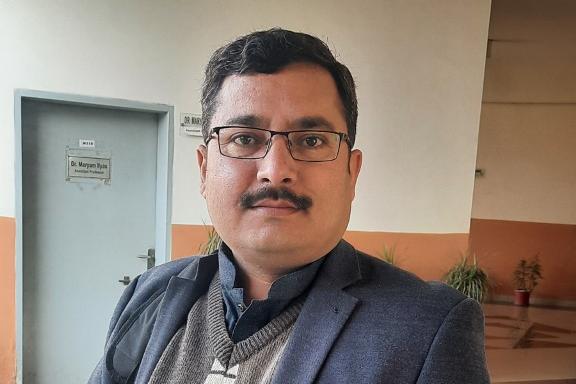
Enhancing Human Comfort in Old Buildings using Data-Driven IoT Retrofits
Abstract:
For centuries buildings have been a source of shelter and comfort for human beings. In their modern, contemporary form, buildings have even enabled us to artificially condition various elements, including air and water, to meet our comfort needs. Air comfort revolves around removing heat from the ambient air, while water comfort entails storing water for long periods of time for on-demand usage. But due to their high cost, not all buildings have state-of-the-art solutions for either comfort.
Air comfort is a challenge in the developing world due to the widespread use of legacy heating and cooling devices. These devices commonly lack thermal control units, causing temperature levels to exceed the required comfort range regularly. Such temperature is harmful to the health of the occupants and requires more energy to maintain it. Therefore, the heating and cooling process has become the largest consumer of energy in the household. Modern heating, ventilating, and air conditioning (HVAC) systems tackle some of these challenges, but the high cost of such systems impedes their penetration in under-developed countries. Inverted HVAC, practically an inexpensive IoT system, solves this problem by employing a greedy control algorithm that turns the device on and off on the edge of the comfort range, potentially leaving a large gap for further improvement. This thesis exploits this gap and proposes a data-driven model for improved Inverted HVAC control. The final result is an efficient duty cycling of thermal devices that maintains the optimum comfort level, avoids short cycling, and saves energy.
Like air, water is an essential ingredient of human comfort. However, the traditional water setups in homes expose the water tank to direct sunlight, which increases the water temperature to unbearable levels in summers. In ideal circumstances, water should be available at room temperature for various household activities. Although this problem has been tackled by modifying house designs in advanced countries, changing the design in developing countries like Pakistan requires a lot of investment beyond the financial means of the wide majority of the population. To ensure water delivery at room temperature, this work proposes pumping water from the ground tank to the roof tank at the time of usage. To enable this, a robust water usage forecasting model is essential. As part of our work, we develop and deploy custom IoT devices in homes to collect water usage data and develop a machine learning-based forecasting model. While grappling with the real-world data, we observed that the pattern of water, usage is subject to fluctuations attributed to guests and other one-off activities. To account for this dual pattern, we develop two models, one to forecast routine usage and the other for one-off outliers, allowing the system to dynamically interleave them based on the current usage pattern. Our custom IoT device is retrofitted into existing infrastructure with a hardware prototyping cost of $27, whereas it can save up to 16% on water heating costs, through a reduction in natural gas consumption, by leveraging ground tank’s water temperature while improving water comfort by up to 8 ∘C in summers and 3 ∘C in winters, on average.
Our proposed IoT systems can positively impact the lives of millions of people in developing countries.
Publications:
1. Samar Abbas, Ahmed Ehsan, Saad Ahmed, Sheraz Ali Khan, Tariq M. Jadoon, Muhammad Hamad Alizai: No-frillsWater Comfort for Developing Regions, ACM/IEEE International Conference on Information Processing in Sensor Networks (IPSN), Sydney, Australia, 2020. CORE RANK: A*
2. Samar Abbas, Abu Bakar, Yasra Noman, Khadija Hafeez, Ayesha Ali, Tariq M. Jadoon, Muhammad Hamad Alizai: Inverted HVAC: Greenifying Older Buildings, One Room at a Time, ACM Transactions on Sensor Networks (TOSN), 2018.
3. Samar Abbas, Ahmed Ehsan, Saad Ahmed, Sheraz Ali Khan, Tariq M. Jadoon, Muhammad Hamad Alizai: ASHRAY: Enhancing Water-usage Comfort in Developing Regions using Data-driven IoT Retrofits, ACM Transactions on Cyber-Physical Systems (under submission)

